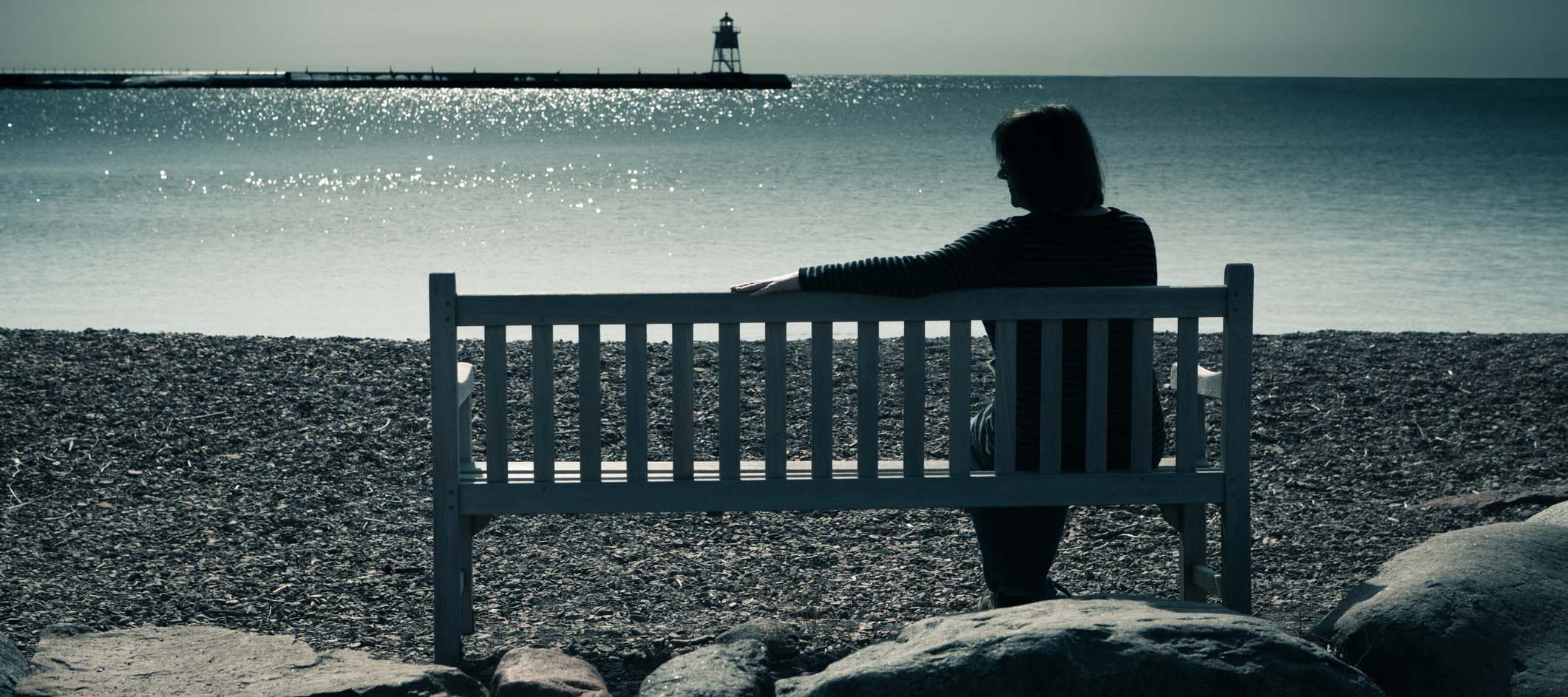The negative impact of loneliness and social isolation has become a focus for health authorities in recent years but the Covid-19 pandemic has only intensified the problem, writes David Lynch
We have all become familiar with the variety of public health measures introduced by the Irish Government and across the world in the face of the Covid-19 pandemic.
As the weeks have passed, the impact on individual mental health and the wider public health consequences of ‘stay at home’ directives and measures such as ‘cocooning’ have been increasingly discussed by medical experts.
One of the challenges highlighted during the crisis has been the public health results from loneliness. Of course, this problem pre-dates the arrival of Covid-19, but the virus has certainly concentrated minds on the topic.
Ms Mo Flynn is a Gerontologist and was President of the Irish Gerontological Society (IGS) from 2014 until 2017. She recently told the Medical Independent (MI) that the Covid-19 pandemic has serious consequences in terms of loneliness and mental health, particularly for older people. She pointed out that Prof Brian Lawlor, Consultant Geriatric Psychiatrist, St James Hospital, Dublin, and Prof Rose-Anne Kenny, Principal Investigator at The Irish Longitudinal Study on Ageing (TILDA), Trinity College Dublin, and organisations such as Alone and Age Action, have highlighted the health impacts of loneliness and isolation for years.

Prof Lawlor told MI that “Covid-19 has catapulted into stark relief the mental health effects of loneliness and isolation”. He was a member of the loneliness taskforce, which in 2018 published a report titled A Connected Island: An Ireland Free from Loneliness.
The taskforce was established by Mayo GP (and former Senator) Dr Keith Swanick in collaboration with Mr Seán Moynihan, CEO of Alone.
“Social and physical distancing and the imposition of cocooning for those over-70 has had significant impacts on the health and wellbeing of older people, particularly those living alone and on those providing and receiving care in the community and in residential care settings,” Prof Lawlor said.
“High levels of anxiety, low mood and an increase in a sense of despair have been evident in calls to the Alone helpline during this period.”
Psychological survey
The evidence of the impact of Covid-19 on levels of loneliness is not just anecdotal. Last month, researchers released the first wave of the Irish Covid-19 psychological survey.
Over 1,000 adult citizens of the Republic of Ireland completed the survey. Initial results suggest that mental health problems are common during the pandemic. Loneliness was the most prominent issue highlighted in the survey, with 41 per cent reporting feeling lonely during the pandemic. According to the survey, 23 per cent reported clinically meaningful levels of depression, 20 per cent reported clinically meaningful levels of anxiety, and 18 per cent reported clinically meaningful levels of post-traumatic stress.
“Nearly half of the people surveyed were feeling lonely and those people with higher levels of loneliness were most likely to experience adverse mental health problems,” said one of the researchers, Dr Philip Hyland, Senior Lecturer at the Department of Psychology, Maynooth University.
“We also found that younger people, those who have a tendency to think in catastrophic ways, those who fear being infected by Covid-19, and those who have had someone close to them infected by Covid-19 are at a higher risk of mental health problems.”
The second wave of the Covid-19 psychological survey commenced prior to 5 May, with results expected in the coming weeks.
Of course, this is not just an Irish challenge. Globally, there is growing health awareness about the public and mental health challenges created by lockdown measures.
For instance, this month, Time magazine asked “is Covid-19… making America’s loneliness epidemic even worse?”
“Even before the Covid-19 pandemic, public health experts were concerned about an epidemic of loneliness in the US,” according to the magazine.
“The coronavirus has exacerbated that problem, with most face-to-face socialising for people still under lockdown orders indefinitely limited to members of their own households. For the 35.7 million Americans who live alone, that means no meaningful social contact at all, potentially for months on end.”
Rural general practice
It was Dr Swanick’s experience as a GP that drew his interest towards the public health challenge posed by loneliness.
Two years on from chairing the loneliness taskforce and now working at the frontline of general practice, Dr Swanick feels many of the issues raised by the work of the group are more pertinent than ever.
“I am working in Belmullet (Co Mayo), which is a rural location. Even though it’s rural, it’s still fairly populated…it would have a population ranging across the board, but especially an elderly population,” Dr Swanick told MI.
“Many of the elderly cohort were quite good and they did cocoon, but I also have to say many didn’t. I think in some respect the farmers were sort of protected, because they were able to go on and do their daily farming duties; that helped their mental health, even if they were over 70. I think that really helped.

“On average, we were doing 50-to-75 call-backs a day. I’d say 20-to-30 per cent of those were not in relation to physical ailments; they would have been mental health issues, like anxiety, depression and also loneliness. So it is a very prevalent thing at this time.”
However, Dr Swanick warns that this is not just a challenge for older people. He said that the disconnection currently experienced by younger people could have significant health consequences in the coming months.
“As you know [loneliness] it is not confined to rural or urban, rich or poor, or young and old,” he said.
“I think a lot of the younger people… we have to be mindful of them, especially if this social distancing continues.
“Especially when you get into September, they would be looking forward to going back to college; that first semester might be worrisome. They might be doing a lot of online stuff, and maybe until after Christmas into January, February or March.
“I think that could impact the mental health of younger people. We need to look at depression, anxiety, maybe suicide rates in young people after the summer time. I think that could be a dangerous period as well.”
In terms of the new Government’s implementation of recommendations in the loneliness taskforce report (see panel), Dr Swanick said: “We need to tag on the ‘loneliness’ title to a specific minister.
“We need an individual minister to be responsible and answerable to parliamentarians and to the NGO sector, and to the public. Therefore, if there is a dedicated minister in charge of the portfolio, then a dedicated fund would have to go hand-in-hand with that.”
Dr Swanick said the policy issues and recommendations raised by the taskforce had found support within his own Fianna Fáil party and among members of other political parties. Despite no longer being a Senator, he is hopeful that if the political pressure continues, the new Government would implement more of its recommendations and focus on loneliness as a health challenge.
“A huge amount of work went into that paper [taskforce report], we got thousands of submissions from around the country,” said Dr Swanick.
“I’d like to see the work continue. That’s the main thing.”
Impetus
Regarding the health policy impact of higher rates of loneliness among the Irish public, Prof Lawlor said he hoped the current focus on the topic may mean that the new Government will refocus on loneliness as a health policy challenge.
“Covid-19 has resulted in many more people gaining first-hand experience of what it means to be socially isolated and to feel lonely, and by raising awareness about its impact, [it] could provide an impetus to accelerate the implementation of the recommendations of the loneliness taskforce,” Prof Lawlor said.
“The fact that so many people have now been impacted by isolation and loneliness at a personal level could mean that we will see greater empathy, compassion and caring being shown towards those that are lonely and isolated.
“In a strange way, Covid-19 could become the unexpected stimulus that spurs the implementation of the recommendations of the loneliness taskforce. However, there is always the danger that prioritisation of the economy over health as part of our recovery could once again disadvantage the health and wellbeing of vulnerable populations and put efforts to address loneliness and isolation on hold. We must resist that happening.”
While the health impact of loneliness on society has been placed front-and-centre during the pandemic, it pre-dated the present crisis, he said.
“Covid-19 has changed the face of loneliness and isolation and its effects are not going to go away in a hurry,” said Prof Lawlor.
“Stereotypes will be challenged, in that many more people will have experienced loneliness and social isolation and will continue to do so until the advent of a vaccine.
“It will be important that we understand who these people are, especially the groups hardest hit by the crisis, ie, carers, people living alone, marginalised groups, non-ICT [information communications technology] users, those with cognitive impairment and dementia. What support they need now, what support organisations, services and communities can provide and how we can create a better system of joined-up health and social care post Covid-19 and into the future.”
Prof Lawlor argued that the health focus of the Government will inevitably alter as the crisis evolves.
“To date, most of [the] Government’s focus has been on reducing the transmission of infection, but as time goes on, we will have to move into examining the wider impact of Covid-19 on physical and mental health,” he said.
“There will be an opportunity and a greater sense of urgency for a cross-Governmental approach to addressing loneliness and social isolation post-Covid and beyond.”
Loneliness policy in the shadow of a pandemic
It is two years since the loneliness taskforce published its report.
According to a Department of Health spokesperson, in late 2019, Minister of State for Mental Health and Old People Jim Daly agreed to take ministerial responsibility for loneliness under his mental health brief, as distinct from his older people brief. However, the Government “did not formally adopt the taskforce’s recommendations as official policy,” the Department spokesperson told MI.
It will become clear in the coming weeks whether the new Government will continue this allocation of responsibility for loneliness policy to the new Minister of State for Mental Health and Old People.
“As loneliness is a societal issue, the Government has sought to combat loneliness by working with communities through the community mental health fund, which is making €3 million available to assist voluntary, community and sporting organisations to develop community-level supports and initiatives that align to existing mental health policies and/or contribute to addressing loneliness,” according to the spokesperson.
“Loneliness is a cross-Governmental issue that is increasingly being addressed by Government policy, with various Governmental initiatives tackling loneliness by promoting the social inclusion of specific groups and/or advancing social inclusion and community rejuvenation through the development of local infrastructure and initiatives.
“These include Better Outcomes, Brighter Futures, the Migrant Integration Strategy and the National Traveller and Roma Inclusion Strategy, as well as Project Ireland 2040 [National Development Plan]. These are all aimed at strengthening the ties and connections at the heart of Irish society that are the best safeguard against loneliness.”
In terms of the specific impact of Covid-19 on loneliness, the Department spokesperson said that “in order to limit the negative effects that Covid-19 will have on the positive mental health of the nation, the Department of Health and HSE are working with other departments and providers to deliver supports for everyone as quickly as possible.
“Minister for Health Simon Harris launched a mental health and wellbeing initiative aimed at supporting the diverse mental health needs of the public during the Covid-19 pandemic on 11 April… The initiative… is being delivered across Government using a stepped-care approach that assists staff and priority groups first, and then moving and broadening supports for specific cohorts as time moves on.
“The HSE are also linking-in with NGOs already to decide how best to respond during and following isolation. NGOs are best suited to be flexible and reconfigure resources quickly to meet the needs of their target groups. Working with NGO partners, a stepped-care approach will respond to the varied needs of all individuals in need of care and support during and following this pandemic.
“The important work of NGOs in the mental health and the loneliness space during this period must be recognised; NGOs such as Alone provide support for older adults dealing with loneliness through daily contact and engaging them with services, as well as providing other important support services.”












Leave a Reply
You must be logged in to post a comment.